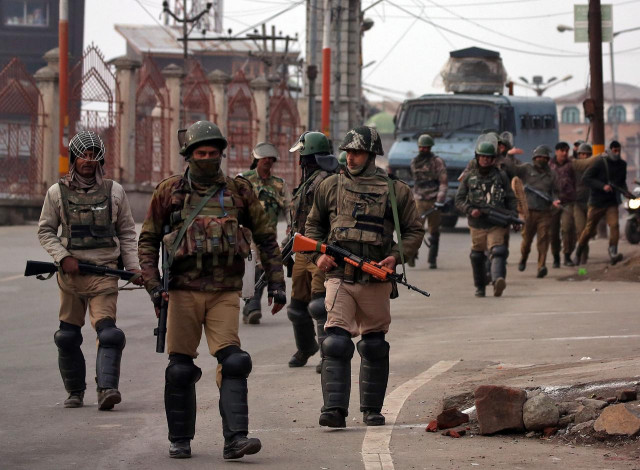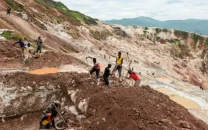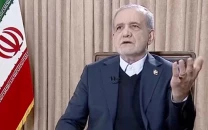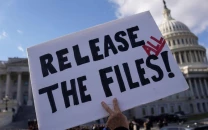Trump’s Kashmir mediation offer may have prompted India to annex occupied valley: report
Mediation offer 'convinced Indian officials that a window of opportunity in Kashmir might soon close'

PHOTO: REUTERS/File
During Prime Minister Imran Khan's July 2019 trip to Washington, the US president had offered to play mediator between the two South Asian nuclear rivals. The offer was met by an uproar in India's parliament and New Delhi stating that the issue of Kashmir was an internal issue.
In August, following the Imran-Trump meeting, India’s government revoked the special status of occupied Kashmir and rushed through a presidential decree in a bid to fully integrate its only Muslim-majority region with the rest of the country, hours after imposing a major security clampdown in the region. The move was pushed by India's ruling right-wing party, the BJP.
The report, prepared by the Congressional Research Service (CRS), states that “President Trump’s seemingly warm reception of Pakistan’s leader, his desire that Pakistan help the United States 'extricate itself' from Afghanistan, and recent US support for an International Monetary Fund (IMF) bailout of Pakistan combined to elicit disquiet among Indian analysts”.
"Trump’s Kashmir mediation claims were especially jarring for many Indian observers, some of whom began questioning the wisdom of Modi’s confidence in the United States as a partner. The episode may have contributed to India’s August moves," added the CRS report.
President Trump's offer of mediation may have "convinced Indian officials that a window of opportunity in Kashmir might soon close" and officials in New Delhi may have taken this opportunity to "deprive Pakistan of the 'negotiating ploy' of seeking US pressure on India as a price for Pakistan’s cooperation with Afghanistan".
"The move also appears to have been popular among the Indian public, possibly in part due to a post-Pulwama, post-election wave of nationalism that has been amplified by the country’s mainstream media," elaborates the report.
The CRS further dismisses the claim by the BJP-led government that the move was intended to bring the disputed territory on par with other Indian states economically.
"Notwithstanding Indian authorities’ claims that J&K’s special status hobbled its economic and social development, numerous indicators show that the former state was far from the poorest rankings in this regard."
The report for Congress further analysed the state of affairs in India and stated that negative economic news and increasing criticism of the government also played a part as "Modi and his lieutenants were eager to play to the BJP’s Hindu nationalist base and shift the national conversation".
CRS also quotes critics of the Modi regime who maintain that the policy of the BJP government "entails bringing the patriotism of Indian Muslims into question and portraying Pakistan as a relentless threat that manipulates willing Kashmiri separatists, and so is responsible for violence in Kashmir".
Following India's unilateral and illegal move, numerous members of Congress went on record in support of Kashmiri human rights. The United Nations also issued an "unprecedented 2018 Report on the Situation on Human Rights in Kashmir from the UN Human Rights Commission harshly criticized the New Delhi government for alleged excessive use of force and other human rights abuses in the J&K state".
The CRS prepares reports for the Congress on international issues and is an independent research wing of the house. The periodic reports prepared by the organisation help US lawmakers make informed decisions on global issues.






1721969212-0/BeFunky-collage]-(35)1721969212-0-208x130.webp)












COMMENTS
Comments are moderated and generally will be posted if they are on-topic and not abusive.
For more information, please see our Comments FAQ